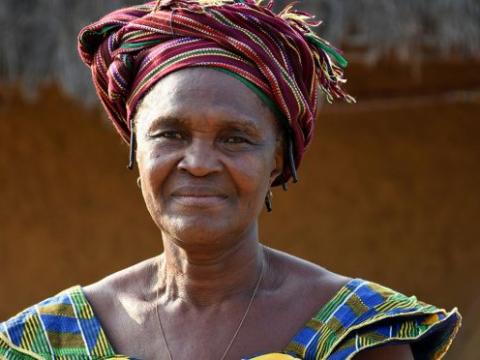
We believe education starts on day one
We believe education starts on day one
Our vision for every child is life in all its fullness. A child’s story begins on day one. An infant held in loving and nurturing arms has a brighter future. We want every child protected, cared for and given the learning opportunities necessary to become all God meant them to be.
Eighty per cent of brain development happens in the first three years of life, and 90 per cent is complete by age five. It’s vital that parents are given sound information and support to help nurture and protect infants, toddlers and pre-school aged children to see them reach their full potential.
Early Childhood Development programmes are powerful equalisers for children who live in resource-poor settings, and they play an important role in breaking the intergenerational cycle of poverty. However, access to pre-primary learning opportunities is very low in many places, with only 17 per cent of children in low-income countries enrolled in such programmes.
Our Early Childhood Development programmes train parents, caregivers and community members to care for children from pregnancy through their first six years. We focus on children’s wellbeing and early learning skills, encouraging secure and stimulating home environments that recognise parents as ‘first teachers’ and set children up for life-long learning success.
Go Baby Go!
Go Baby Go is an integrated, evidence-based parenting programme that helps caregivers understand how education, health, nutrition, and child protection foster holistic development in the first 1,000 days of their child’s life. It builds on existing knowledge about child rearing to leverage caregivers’ strengths and to teach them new ways to engage their little ones. It also encourages adults to make time for self-care so they can better fulfil their role as first teachers and first protectors.
Parents are seeing the results of Go Baby Go in countries like Armenia, Jerusalem-West Bank-Gaza, Cambodia, Haiti, and Sudan. In Armenia, 72 per cent of children whose parents participated in Go Baby Go were developmentally on track, compared to 59 per cent of children whose parents did not participate in the programme.
Learning Roots
A child’s life course, and her development and learning needs, continue to take shape after her first three years. Learning Roots, our programme for children ages three to six, supports and prepares the most vulnerable children in their next key development stage by helping to prepare them for a successful transition to primary school.
Our Learning Roots programme enhances the ability of caregivers and early childhood teachers to encourage each child’s social and emotional development, as well as early reading and numeracy skills, in a loving and caring environment. Learning Roots also strengthens Early Childhood Development centres by training teachers on effective, nurturing and inclusive practices, as well as creating safe and stimulating learning experiences. We work to foster partnerships between local and government systems to ensure that everyone works together to protect, love and nurture the children in their communities so that they receive every advantage in their development as lifelong learners.
Our Learning Roots programme is being piloted in Ethiopia, Thailand, Cambodia and Bangladesh, and has plans to expand to new communities.
A holistic approach to early childhood development
What makes our strategy at World Vision unique and effective is that we take a holistic approach to transforming a child’s life story. We believe early development is complex, requiring hard work in many areas beyond education – like health, nutrition and economic development – to bolster children’s learning and development outcomes and give them hope for their future.
World Vision’s decades of field experience in thousands of communities have honed our holistic and integrated methods, but we also believe in giving a voice to the marginalised. We include caregivers in shaping our programmes to meet their specific needs. We also mobilise local community members, inspiring them to come alongside and experience the joy of transforming vulnerable children’s life stories.



